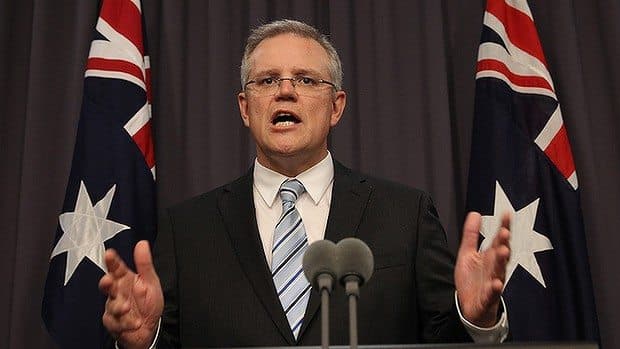
- 13 August 2016
Scott Morrison Should Hammer The Big Banks
A tough approach to the banks during the Howard/Costello period ensured that the banks passed on the full RBA rate cut unlike today according to Kevin Young, Property Club president.
Mr Young said this strong approach was highlighted on 3 October 2001 when then Treasurer Peter Costello contact all the major banks to check when they would be passing on the RBA rate cut announced the previous day.
“As a result of this strong approach all of the RBA rate cuts were passed on in full during the Howard/Costello period unlike the Turnbull/Morrison reign,” he said.
“Instead of pushing the banks to pass on the full interest rate cut, Scott Morrison was making excuses for the big banks.
“The big banks in Australia are already the most profitable in the world with their profit equating to a staggering 2.9 per cent of GDP, making Australian banks effectively the most profitable in the world.
“That means 2.9 per cent of every $100 earned in Australia ends up as bank pre-tax profit, compared to the US and UK at $1.2 and 90 cents per cent respectively.
“The decision by The Bank of England to cut interest rates last week from 0.5% to 0.25% also shows the RBA in Australia is an international joke with an interest rate setting of 1.50%.
“Currently, the UK had an unemployment rate of just 4.9% compared to nearly 6% in Australia despite our interest rates are now six times higher.
"The RBA has presided over world high interest rates and an arrogant banking sector that is dominated by the big four banks. It is a fact that the RBA has the levers to pull that could force the banks to pass on the full rate cut to mortgage holders.
"Property Club supports the call for a Royal Commission into the banking sector but believes the terms of reference should be widened to include the operations of the RBA,” he said.
Editor’s Note: Property Club has accumulated nearly 300 instances of the RBA's crystal ball failings and associated graphs. This data reveals how the polices of the RBA has caused hundreds of thousands of jobless, lack of GDP wealth growth and contributed greatly to the gradual decline in living standards.
Related Posts

Adelaide’s Growth Curve Is Steepening
Adelaide has entered a new phase of its property cycle, and the data confirms it. According to the Office of the Valuer General, the median house price in metropolitan Adelaide reached $925,000 in the December 2025 quarter. Twelve months earlier, it was $850,000. That represents a $75,000 increase in one year,...
- 12 February 2026

Stop Overthinking Refinancing
By Joe Linco, Club Broker at Property Club When the Reserve Bank of Australia raises interest rates, most borrowers react the same way. Repayments go up, pressure increases, and the issue gets parked for later. That pause is often what costs the most. After the most recent RBA rate rise, many homeowners and property...
- 11 February 2026

Why the February RBA Decision Matters More Than the Headline
With the Reserve Bank of Australia heading into its February interest rate meeting, borrower attention is back on rates, repayments and loan structures. Recent economic data has shifted expectations, and uncertainty is now the dominant theme. Inflation has proven slower to cool than anticipated, and that has placed...